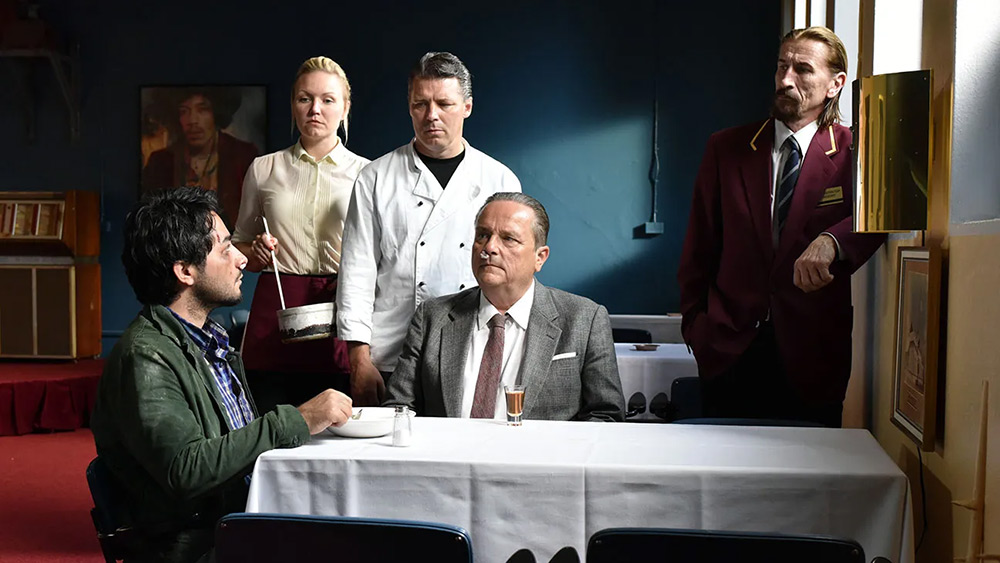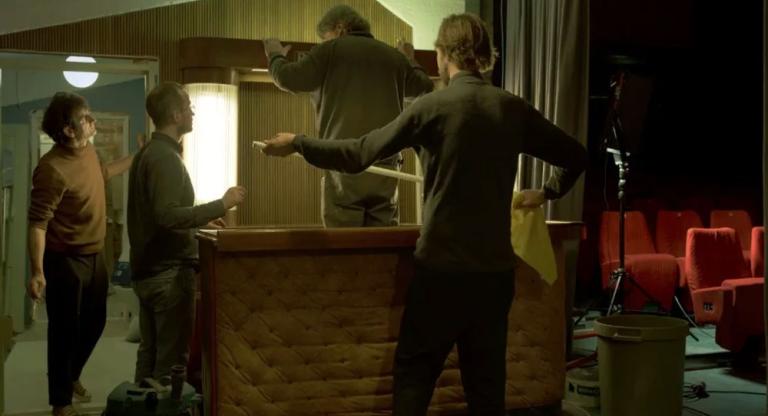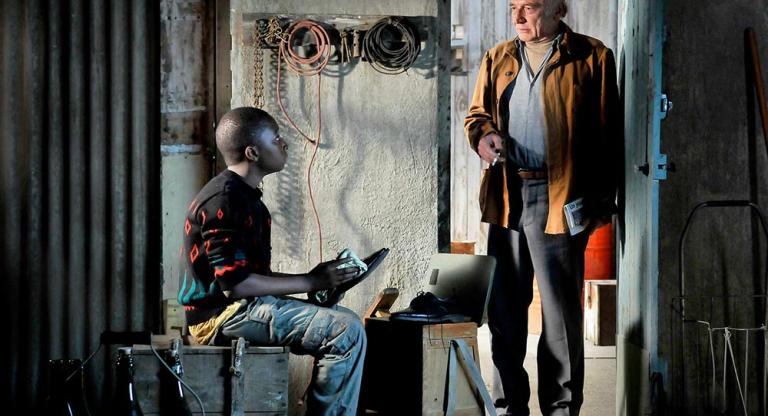During the end of the 2010s, there seemed to be a conscious shift in several filmmakers to create more politically direct films. Mike Leigh’s Peterloo (2018) was perhaps the most viciously direct anti-establishment movie he had ever made. Terrence Malick’s A Hidden Life (2019) indicted Nazi ideology and the hefty price innocents had to pay in defiance. It’s the sign of a master artist to understand the times in which the political realities of the present demand a need to break away from their artistic inclinations. That is what makes Aki Kaurismäki’s The Other Side of Hope (2017) so unique and singular in his oeuvre.
The Other Side of Hope is a film that is clearly conscious of the moment that it is in, and it lingers on the political tragedies that are often left as short newspaper clippings or background static on the radio. The film shows Khaled Ali (Sherwan Haji) in a shelter for asylum-seekers in Finland looking up at a flat screen TV that’s broadcasting live war footage of his homeland in Syria being bombed. Karusmaki’s camera stays on this moment, making us watch what Khaled has experienced unflinchingly. This sequence not only defies the sort of ironic, cutesy satire Kaurismäki likes to employ, it also defies his fastidious devotion to analog aesthetics. Footage of locals in Aleppo carrying pieces of corpses among rubble on a sleek flatscreen high-definition television slashes through all of the typewriters, ‘60s jukeboxes, anonymous radio chatter, and old-fashioned cars lining the warm vintage aesthetic of the movie’s interiors to slap us awake to the urgency of the present.
Kaurismäki isn’t totally removed from his general proclivities: booze, cigarettes, labor disputes, and dying businesses. Khaled’s journey to seek permanent residence leads him to work at a failing café run by a strict but warm-hearted restaurateur named Wikström (Sakari Kuosmanen). Love, once again, becomes the singular undying hope and escape in a hellish world for Kaurismäki’s characters, seen in Khaled’s relentless search for his sister, the only family member of his left alive. He also meets an Iraqi refugee, Mazdak (Simon Hussein Al-Bazoon) who takes him to bars and lets him borrow his cellphone to keep trying to find his lost sibling. While in Kaurismäki’s other films love comes in the form of romantic companionship, here it is a love of family and friends, those who unsuspectingly reach out with a helping hand. He acknowledges the racism, the violence, and the hatred brewing in his own country—a roving gang of neo-Nazis make several appearances threatening to burn, stab, and kill Khaled—but counters it, showing characters who are willing to help and be kind, even if it’s in their usual dour, allergic to emotion, smiling-not-allowed, Kaurismäki kind of way.
The Other Side of Hope screens tonight at Anthology Film Archives in the series Performa Presents: The Other Side of Humane.





